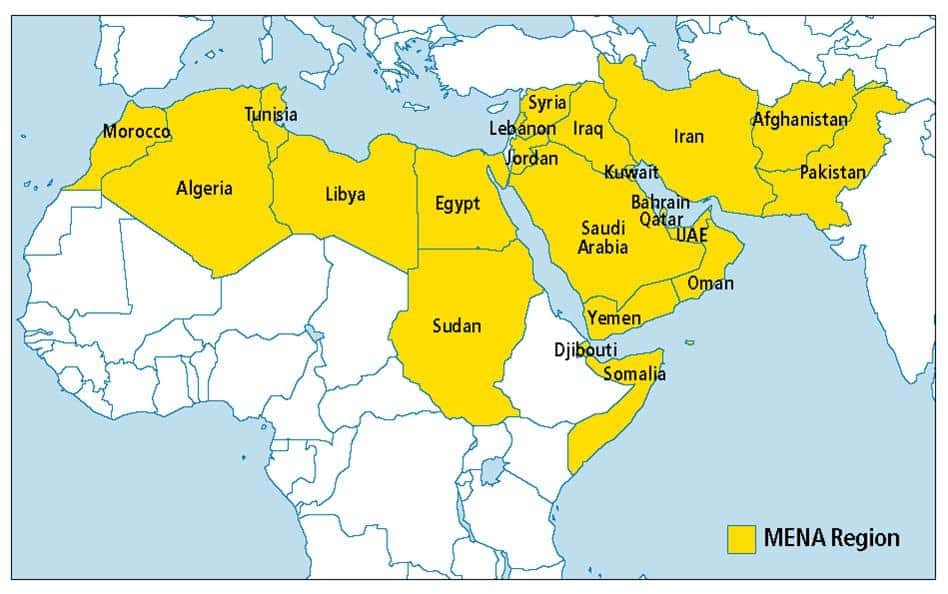The Middle East and North Africa (MENA) region continues to cement its position as a global business hub, with the travel & tourism market projected to reach $39.57 billion in 2025, according to Statista.
In 2024, The MENA business travel sector saw impressive growth, surpassing the $17 billion mark, reflecting its rapid growth driven by economic expansion, digital transformation, infrastructure development, and a growing emphasis on sustainability.
This article explores the key factors fueling this continuous growth, from cutting-edge technologies reshaping travel logistics to the rise of eco-conscious travel initiatives and standout destinations redefining business in the region.
Tech-Driven Travel Trends


A key catalyst for this boom, according to Wamda, is the rapid adoption of digital transformation across MENA. Governments and businesses are leveraging AI, smart city technologies, and automated systems to streamline business travel logistics.
Cities like Dubai and Riyadh lead the way, offering “smart airport” experiences, digital visa processing, and AI-driven booking tools, ensuring that professionals can travel with greater ease and efficiency.
Infrastructure Fuels Regional Growth
Countries like Saudi Arabia and Qatar have poured significant investments into infrastructure to support international business travellers.
Modern airports, highways, and luxury hotels have transformed the region into a seamless and accessible hub for conducting business. Additionally, the area’s rich cultural heritage and breathtaking landscapes create a unique environment where work and leisure blend effortlessly.
Green Business Travel Takes the Spotlight


Sustainability is no longer optional in the MENA business travel landscape. For example, venues like Masdar City in Abu Dhabi and solar-powered conference centers in Dubai offer eco-friendly options for business travelers, among other locations such as Al Thakira Mangroves in Qatar.
This shift aligns with global environmental goals as well as attracts companies prioritizing green travel policies.
Top Business Travel Destinations in MENA


Certain cities in MENA stand out for their ability to combine world-class infrastructure, thriving economies, and cultural appeal.
Dubai, UAE: A Leader in Innovation and Connectivity
Dubai remains a top destination, thanks to its world-class infrastructure, thriving economy, and events like the Dubai Expo legacy projects. Its strategic location at the crossroads of three continents ensures unparalleled connectivity.
Istanbul, Turkey: Bridging Two Continents
Istanbul’s unique position as a gateway between Europe and Asia continues to attract global industries. Its rich culture and vibrant business scene make it a dual-purpose destination for work and leisure.
Riyadh, Saudi Arabia: Driving Economic Transformation in the Gulf
Emerging as a global powerhouse, Riyadh exemplifies the future of business in MENA. The Saudi Vision 2030 initiative has brought about mega-projects like NEOM, a city envisioned to blend technology and sustainability. Riyadh is increasingly becoming the go-to destination for industries ranging from tech to healthcare.
Cairo, Egypt: A Hub for Emerging Markets and Culture
Cairo remains a gateway to Egypt’s thriving sectors, including agriculture, manufacturing, and tourism. Despite infrastructure challenges, the city continues to attract professionals seeking growth in the North African market.
Landmarks such as the Pyramids of Giza provide a cultural dimension that distinguishes Cairo from other business hubs.
Casablanca, Morocco: A Gateway to North Africa
With its strong business community and trade links, Casablanca is ideal for professionals looking to tap into North African markets. Its balance of modernity and tradition offers a unique backdrop for business activities.
Choosing the Right Destination


The MENA region’s business travel landscape is evolving rapidly, driven by innovation, sustainability, and strategic investments.
Whether you’re drawn to the futuristic projects in Saudi Arabia or the vibrant cultural-business blend of Istanbul, the region offers unparalleled opportunities for professionals. As we move into 2025, the region continues to be a catalyst for global growth and innovation.
WE ALSO SAID: Don’t Miss… Walking into the Future: Dubai’s 2040 Plan for a Pedestrian-Centric City



